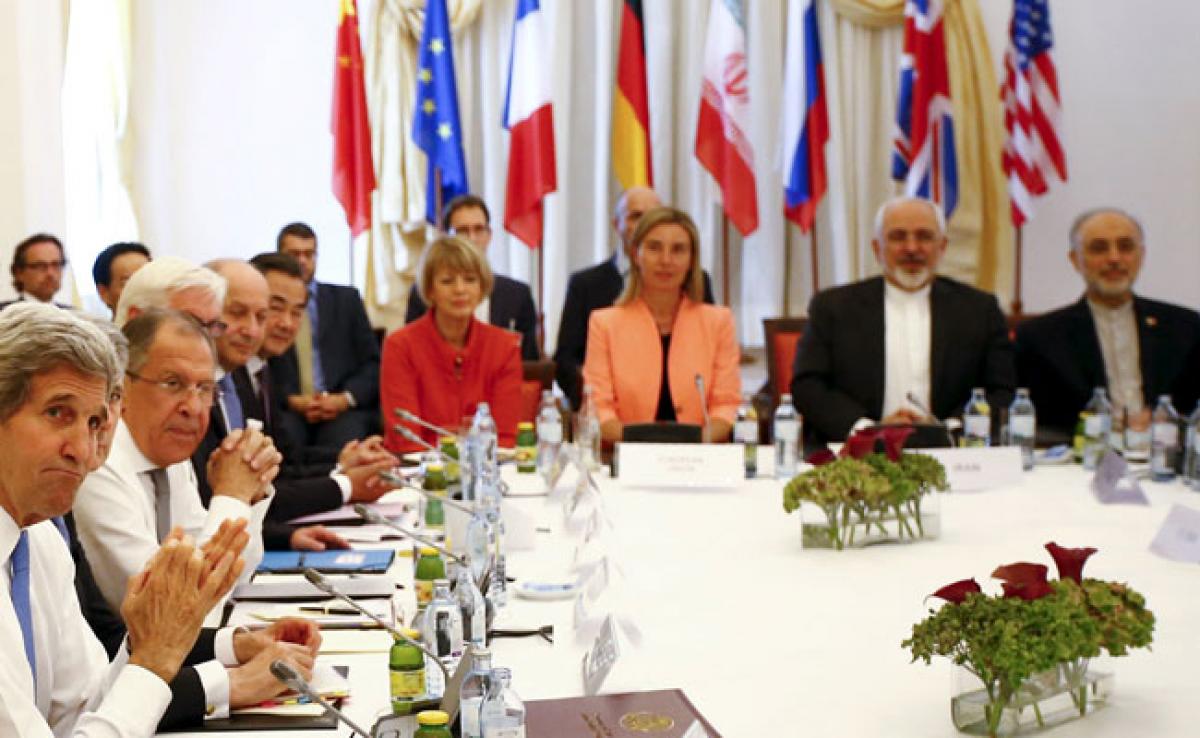Live
- Vedamrit Honey’ launched
- Arjun Das Brings Mufasa to Life in Tamil
- Odisha move to prepare maritime perspective plan
- Jal Jeevan Mission empowering women in rural areas: PM Modi
- Pradhan urges Nadda to set up pharmacy unit in Odisha
- Assembly winter session ends ahead of schedule
- Nepali Army Chief General Ashok Raj Sigdel Strengthens Ties With India In Four-Day Visit
- BRS MLAs, MLCs Skip Second Day of Orientation Classes
- Andhra Pradesh Student Dies in Tragic Car Crash in Leicestershire, 4 Others Injured
- Oppn assails delinking of Waltair div from ECoR
Just In

x
Highlights
U.S. Senator Jeff Merkley, a Democrat from Oregon, said on Sunday he would support the nuclear deal with Iran, moving President Barack Obama a step closer to having sufficient backing to ensure the deal stands.
U.S. Senator Jeff Merkley, a Democrat from Oregon, said on Sunday he would support the nuclear deal with Iran, moving President Barack Obama a step closer to having sufficient backing to ensure the deal stands.
.jpg)
"I believe the agreement, titled the Joint Comprehensive Plan of Action (JCPOA), is the best available strategy to block Iran from acquiring a nuclear weapon," Merkley wrote in a statement published on Medium.com.
To read the statement, see (http://bit.ly/1PFmSwz)
Obama is trying to muster 34 votes in the Senate to ensure lawmakers cannot kill the deal. Thirty-one senators, all Democrats and independents who vote with Democrats, have now said they will support it.
Congress must vote on the deal by Sept. 17. The following describes how votes are likely to play out:
When Congress returns on Sept. 8 from its August recess, debate will begin on a Republican-sponsored "resolution of disapproval" against the deal.
In the Senate, Republicans must gather 60 votes to move the resolution forward under Senate procedural rules. If they can, they will then need a simple majority of 51 votes in the chamber to approve the resolution. It would pass, because Republicans control a majority of Senate seats and most have already come out against the agreement.
There is no similar procedural barrier in the House. The resolution is expected to easily win approval there. Republicans hold 246 seats in the 435-seat House.
If both chambers approve the resolution, it would go to Obama's desk for review. He has vowed to veto it.
If he does so, opponents would then try to override the veto. This would take a two-thirds majority vote in each chamber. The Senate has 100 members; the House, 434, plus one vacant seat.
Democrats could block an override in the Senate with 34 votes. So far, 31 senators have committed to voting in favor of the deal; 31 have said they will oppose it.
In the House, if Republicans voted unanimously against the deal, they would need to get at least 44 Democrats to vote with them to override a veto.
The Iran deal is not a treaty, so it does not need the two-thirds vote in the Senate to be ratified. The "resolution of disapproval" mechanism was included in a law Obama signed in May giving Congress the right to weigh in on the nuclear deal with Iran.
If Congress were to pass a resolution of disapproval and override a veto, Obama would be barred from waiving most of the U.S. sanctions imposed on Iran over its nuclear program. Proponents of the agreement say this would kill the deal.

Next Story
More Stories
ADVERTISEMENT
© 2024 Hyderabad Media House Limited/The Hans India. All rights reserved. Powered by hocalwire.com







